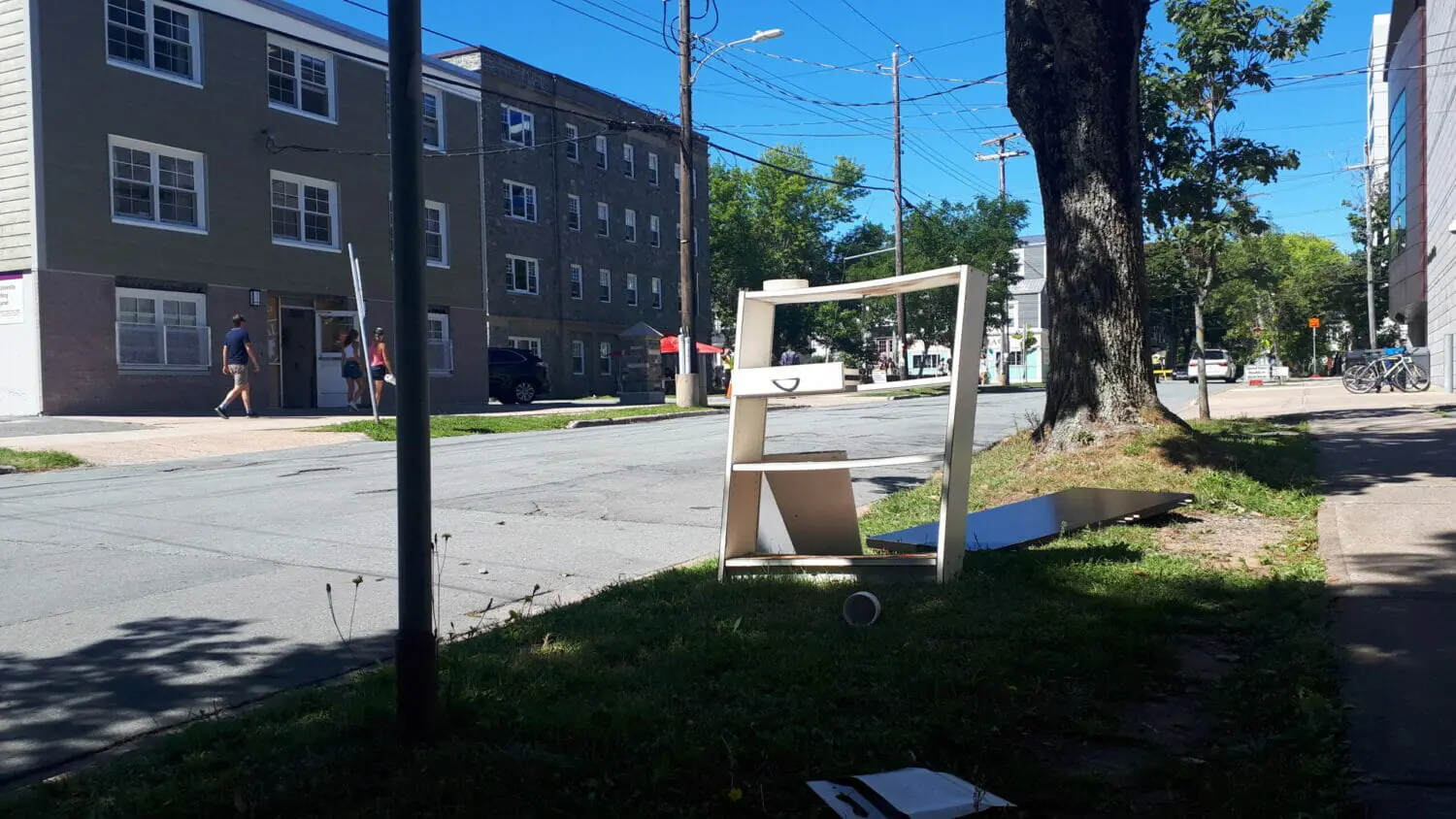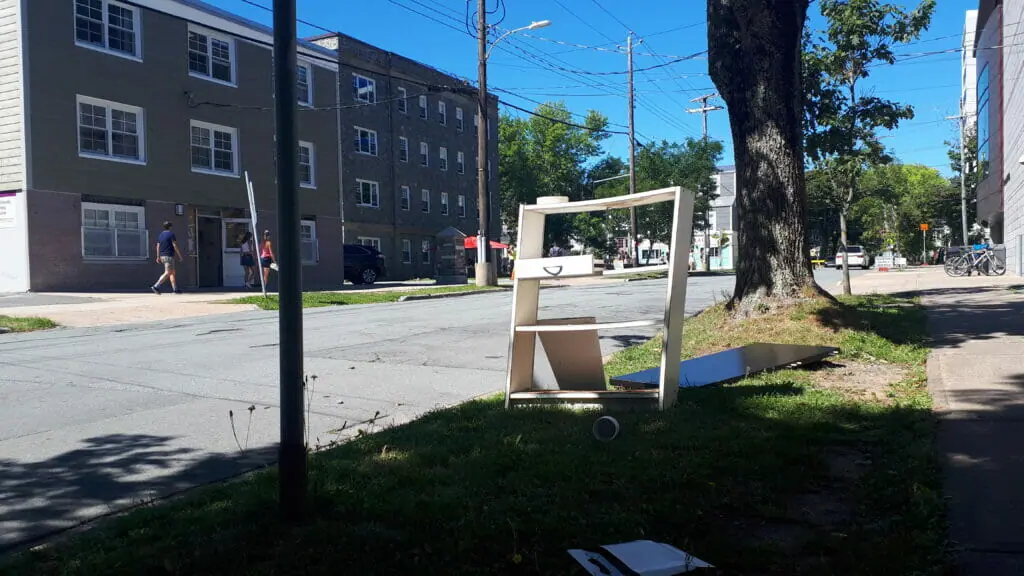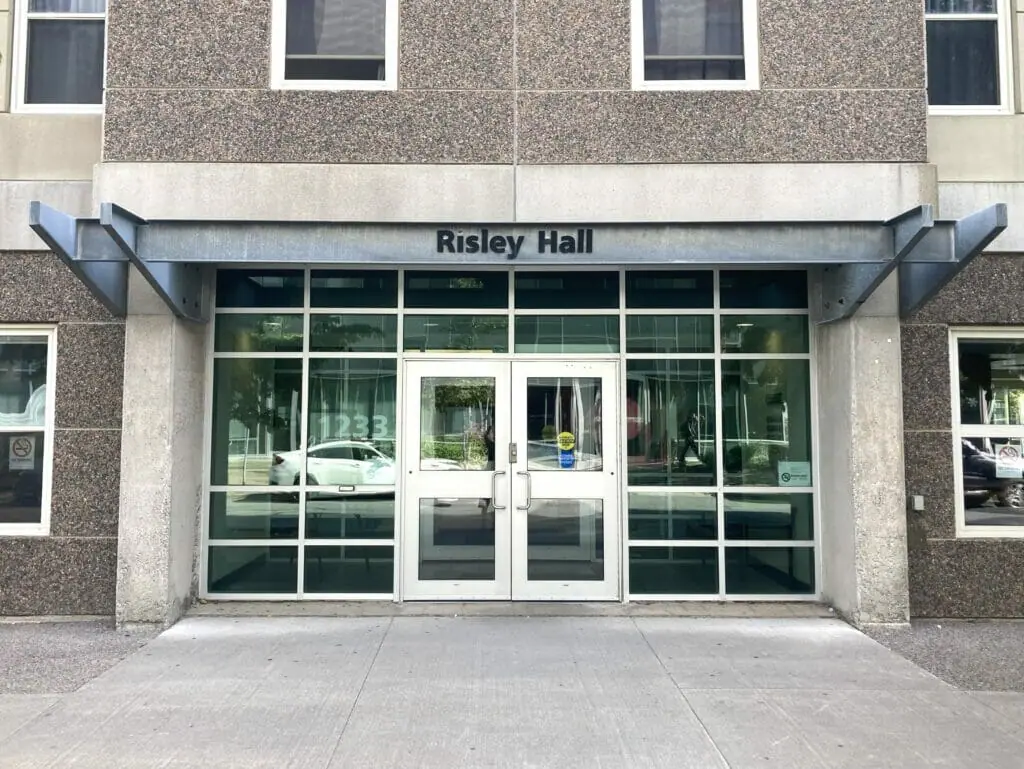Students moved into campus residence buildings at Dalhousie University on Sept. 2 and into University of King’s College ones on Sept. 4. However, not all students had places to move into before the fall semester began on Sept. 6.
King’s went public about their students’ situation last month.
Katie Merwin, King’s College’s dean of students, emailed alumni and off-campus students on Aug. 4 asking for space to accommodate 25 students — 15 first-year students and 10 upper-year students — who could not find housing in campus residences. Every room in King’s residence that could be expanded for more people had already been converted and filled.
“Due to the housing shortage in Halifax, a limited number of apartments are still available and those that are available carry steep prices. We cannot leave any stone unturned as we seek the opportunity to welcome these…students to the Foundation Year Program or a first year at King’s and Dalhousie and to help upper year students on our waitlist find housing,” the email reads.
Elizabeth Grant, an associate director with the King’s advancement office, said the waitlist for King’s residences is shrinking.
“A few [alumni and off-campus students] did have housing options and that information was shared with the students on the waitlist,” Grant said. “However, King’s did not actively participate in the process after that point.”
The needle didn’t move much, according to King’s Students’ Union President Victoria Gibbs. The original 25 students, she told the Gazette, fell to 20 unhoused students.
“Students have been offered alternatives, but many want to ‘wait out’ for residence,” Gibbs said.
The deadline to drop out of courses without financial consequence is Sept. 16. Gibbs said some non-residence students hope spaces will open up after that date.
How did we get here?
Gibbs said part of the housing struggle at King’s is because more upper-year students have chosen to continue living on campus after their first year. She said enrollment has been up this year at King’s. Such numbers won’t be confirmed until mid-September.
“Many upper-year students want the residence experience and missed out on this in their earlier years due to COVID-19,” Gibbs said.
In a report from The Coast in 2021, Halifax has some of the lowest vacancy rates in the country. At a 1.7 per cent rate as of March 2021, the city’s vacancy is below the provincial average of 2 per cent.
However, the skyrocketing housing and rental costs have only exacerbated the problem for students.
This issue isn’t unique to King’s College, either. Dal students without housing have been forced to search for alternatives.
“Being a student is stressful physically, mentally and mainly financially,” said Grace Pereira, a second-year biology student who found housing further from campus, at the expense of commute time. “A 20-minute walk to campus was one of the sacrifices I had to make to stay on budget for the school year.”
Pereira said the process of finding good quality, affordable housing within a reasonable distance from class is long and difficult.
“There seemed to be only two reliable landlords with affordable places. Reliable being that they had several options in terms of properties and full year manageable lease timelines,” she said. “Rent in central locations were all upwards of around $750 a month [per tenant] and that’s not including certain features such as electricity.”
Dalhousie Student Union President Aparna Mohan said she’s seen several students messaging the DSU’s social media pages asking for any leads on housing, particularly permanent housing situations.
“There are students living in Airbnbs paying over a hundred dollars a night,” she said. “This isn’t a unique situation. We’re in this crisis now because of negligence…from institutions to deal with the crisis, as well as the prioritization of luxury rentals. [The city] is prioritizing profitable housing over affordable housing.”
Mohan’s biggest concern is international students arriving in Halifax without a solid understanding of the housing or living situation in the city. She said since Dal is hoping to increase the population of international students on campus, this comes with an increased moral obligation to inform them fully.
International advisors have been telling students there is a housing shortage, according to Mohan, but this has also meant advisors telling these students they should defer from studying in Halifax if they couldn’t get housing by August.
Dal, represented by media representative Janet Bryson, said new, direct-from-high-school students were given priority when getting a room in residence. 2,300 rooms have been filled for the year.
“Most of our students are looking for accommodations off-campus. We know that some of our students are impacted by the Halifax housing market with an increase in housing sales and rentals,” Bryson said to the Gazette. “We continue to ensure our students understand the housing market through proactive outreach. We also provide resources and support to students.”
Where do we go from here?
Dal has implemented some resources to aid students struggling with housing, particularly financial bursaries. The university has also committed additional funding to the Walker micro-bursary, which offers each chosen student $500 for housing aid. This is separate from an emergency bursary the DSU offers for international students.
On top of this, the DSU has developed a housing resources page on their website that consolidates legal aid, advocacy groups, rental sites and financial assistance.
The DSU is continuing their advocacy efforts, Mohan said. However, the DSU hopes to see more concrete supports put in place by the university, particularly for international students since they, Mohan said, “are disproportionately affected by the crisis.”
Gibbs said the KSU is still working on putting together these resources.
“If students need support concerning housing or legal aid, the [KSU] executive is there to help and has experience setting up support,” Gibbs said. “To all the students impacted, despite all the articles and emails, you’re not just a number. You’re a part of this university and if you need support or modes of connections, please reach out.”
With files from Laura Saad Hossne




Recent Comments